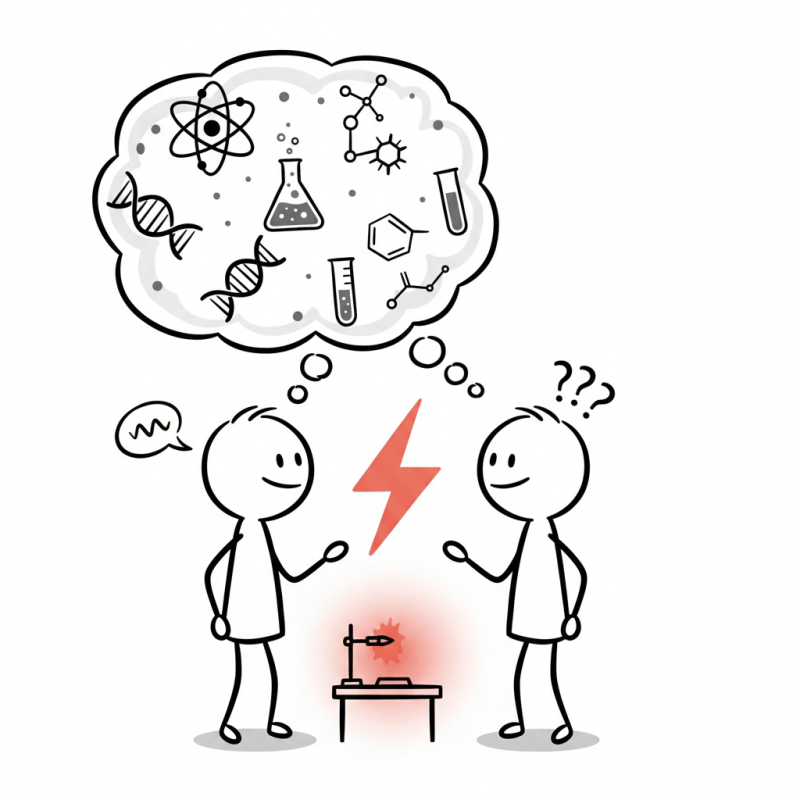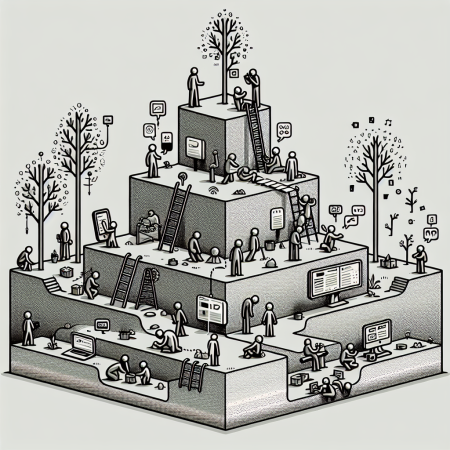A study released this week compares how people in 68 countries consume and discuss science. Romania appears twice in first place in the European Union, and once in last place. We declare ourselves EU champions in consuming scientific content on social media and expressing opinions about science, but no one goes out to protests related to scientific topics.
The study published in January 2025 in Science Communication by Niels Mede and his international team analyzed almost 72,000 responses from around the world. Romanians received a score of 4.41 out of 7 for science consumption on social media, the highest in the EU. In the category of “outspokenness”, i.e. the willingness to express your opinions about science, we obtained 5.88 out of 7, again first place in the European Union. But in participation in science-related protests, only 1.12 out of 7, last place in the EU, the second lowest global score after Uruguay.
Balkan countries have a similar profile
I find it interesting that all three Balkan countries included in the study (Romania, Bulgaria and Serbia) have almost identical scores. Bulgaria has 4.21 on social media (we 4.41) and 5.76 on outspokenness (we 5.88). Serbia: 4.16 and 5.73. On protests, all three are around 1.1-1.6. Hungary and Poland follow the same pattern: high consumption of digital content, lots of opinion, almost zero protest.
For comparison, the Nordic countries show a completely different profile. Denmark, Sweden and Finland consume less scientific content on social media (scores between 2.97 and 3.13 compared to 4.41 for us), but they are closer to us in protests, all somewhere around 1.26-1.31. The big difference is that they have a more solid infrastructure for the formal communication of science: museums, public conferences, research institutions open to the public. Romania has a score of 2.57 in this category, below the global average.
I tried to understand what this combination means: many of us talk about science online, few organize around it offline. Now, I admit that I don't even remember any official science-related protest in Romania, like the March for Science in the United States. But I think this conclusion could be extended to civil behavior in general: social platforms work like a valve, we feel like we have expressed our opinion when we comment, share or write a status, and we no longer see the need to go somewhere physically.
Those who talk the most are not those who know the most
The study also shows that there is an inverse correlation at a global level between the level of education and the willingness to express oneself about science. The less educated people are, the more willing they are to express their categorical opinions on scientific topics. It is the Dunning-Kruger effect applied on a national scale: the less you know, the more convinced you are that you are right. Romania is no exception, on the contrary. We are in first place in the EU in outspokenness precisely at a time when the anti-COVID vaccination rate was one of the lowest in Europe, and trust in scientific institutions is fragile. This combination (a lot of opinion, little real scientific literacy) explains why pseudoscientific content spreads so easily on the platforms where we consume science.
It should be noted that the study authors acknowledge an important limitation: they use self-report questionnaires, meaning people report how much science they consume and are not objectively measured. This methodology tends to overestimate actual exposure, because respondents report more than they actually do. There is also “acquiescence bias,” the tendency to answer what seems socially acceptable, more often in cultures that emphasize conformity, such as those in East Asia or sub-Saharan Africa. In Eastern Europe, collectivist values and respect for authority could generate the same effect: people report being informed about science because that seems to be the desired behavior. The authors argue, however, that the impact is likely limited in their case, because the patterns that would show this acquiescence bias do not overlap with the results they found. For example, Latin American countries, known for high acquiescence, do not appear at the top for science exposure in their data.
Another limitation is related to Romania's position in the EU: only 21 of the 27 countries of the European Union were included in the study. Estonia, Latvia, Lithuania, Luxembourg, Malta and Croatia were missing. The study in Romania was conducted by a polling agency and was based on 400 responses. There is no author of the study affiliated with a Romanian institution.
We need social media to bring science to the people
For those working in science communication in Romania, this profile suggests a few priorities. Social media is the main channel (Facebook, Instagram, TikTok, YouTube), so any research institution or organization that wants to reach the public must be active there. At the same time, vulnerability to disinformation is greater precisely because social media is the main medium of consumption. Media literacy, source verification, critical thinking, all of these become essential.
Our high score on science discussions (3.49, above the global average of 3.11) shows that Romanians talk about science among themselves, not just passively consume it. Here I would pause the study and ask myself how many times I have heard someone talking to a colleague about a galaxy versus how many times I have heard that Covid is invented. I don't really know how to relate to these numbers.
The study: Niels G. Mede et al., "Public Communication about Science in 68 Countries: Global Evidence on How People Encounter and Engage with Information about Science", Science Communication, January 2025. TWO: 10.1177/10755470251376615





